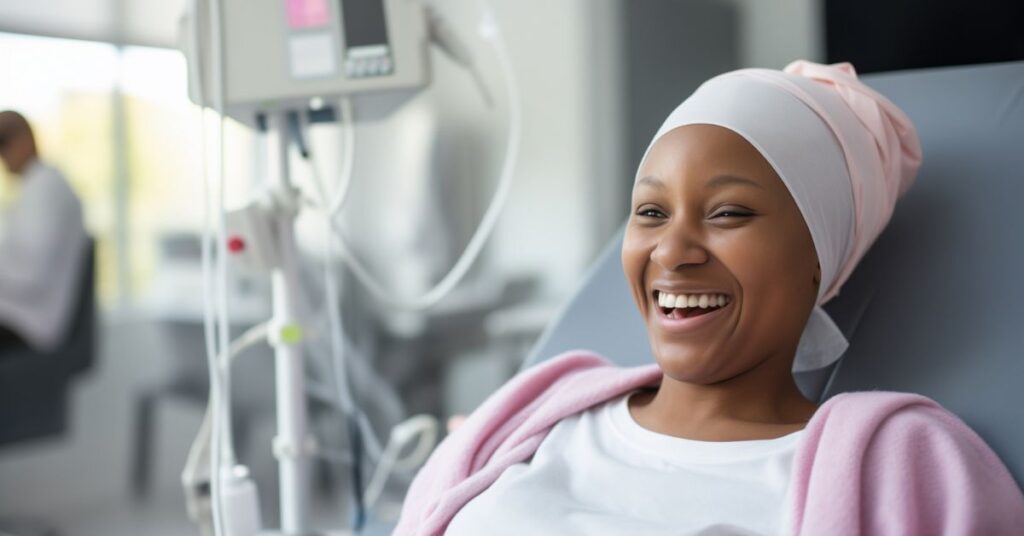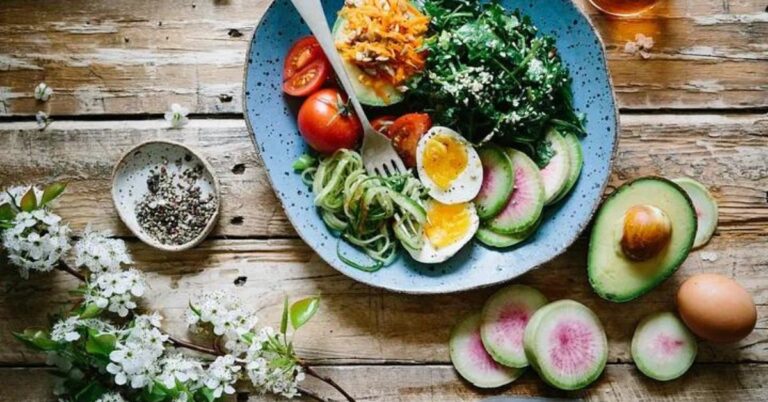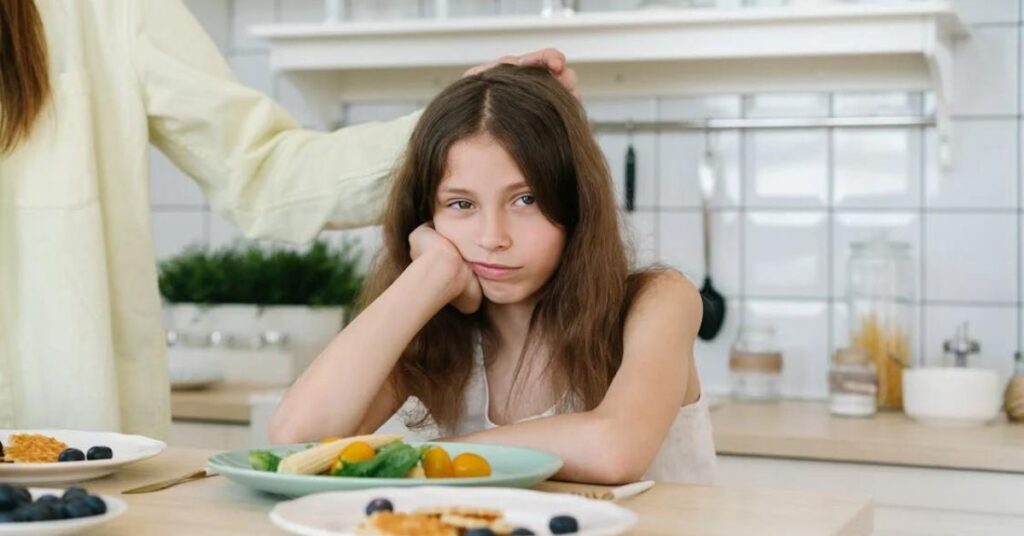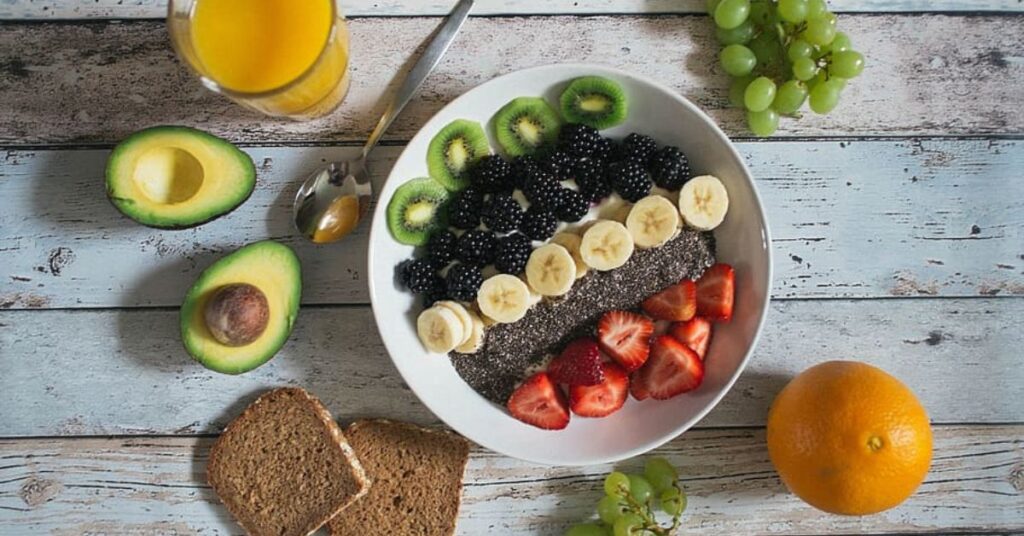Best Diets for Cancer Patients
Cancer can be quite overwhelming, leaving you with a million questions and anxiety. At this time, one major concern for everyone can be what to eat while having cancer? After all, food plays an essential role in every aspect, especially if you’re undergoing a treatment. But with so much information out there, it can be quite daunting to find out which diet is best suitable for you.
So, to clear your confusion, this blog will give you a detailed understanding on the best diets for cancer patients. In addition, you’ll also explore which foods to avoid during cancer and how you can combat certain eating problems that you might experience while undergoing treatment.

Why Is Nutrition Important for Cancer Patients?
For any cancer patient, nutrition plays an essential factor in dealing with the condition. As you may already know, cancer treatments can be quite demanding and complicated. And in such scenarios, knowing what to eat and which food to avoid becomes really crucial.
Having cancer in any part of your body can be really tough. Sometimes, you may not have the appetite and it can become difficult for you to consume certain foods. Moreover, the different cancer treatments can cause you to have a lot of side effects which may make it even more difficult to eat anything. This can further be a reason for your weight loss. Slight change in your weight is not a big issue. However, excessive weight loss or weight gain might have an impact on your health throughout cancer treatment. Therefore, it is essential to find out which food is necessarily good for cancer.
Having a good diet means having the strength to fight this disease. It helps in rebuilding your immune system and recuperating at a faster rate. Moreover, if you have cancer, you may require more protein and calories. You may occasionally need to eat more meat, fish, eggs, dairy products, and plant-based proteins. You may at times need to consume low-fiber meals rather than high-fiber ones. Hence, it’s important to be aware of the diet you consume while undergoing cancer treatment.

Items to Avoid During Cancer
While it is important to know which food is beneficial for cancer patients, it is also equally important to be aware of the kind of foods that you must avoid if you have cancer. Here are some foods that you must avoid if you’re undergoing cancer treatment:
Undercooked or raw meat
This category includes fish, poultry, eggs, red meat, and unprocessed dairy products. Eating these items raises the possibility of contracting a foodborne infection. If you’re receiving cancer treatment, then having foodborne illness can be particularly harmful if you already have a compromised immune system.
Highly processed food
Highly processed items have little nutritional content and high levels of sugar, salt, and harmful fats, all of which can delay healing. Fried meals, sugary beverages, processed meats (hot dogs, bacon, sausages), and refined carbs (white bread, pastries) are a few examples. A lot of hydrogenated oils are included in fried foods, which may cause inflammation.
Foods that worsen cancer side effects
Certain meals have the potential to aggravate the side effects of cancer therapy, such as irritation of the mouth and digestive system. It includes foods that are spicy, acidic (such as tomatoes and citrus fruits), and difficult to digest (such as fried and fatty foods).
Alcohol
Drinking too much alcohol might impair immunity and make cancer treatments more difficult to administer.
Sweetened food and beverages
Consuming an excessive amount of sweetened foods and beverages may raise your risk of obesity and type 2 diabetes. It is also found that both these disorders increase oxidative stress and inflammation. So it puts you at risk of cancer.
Here are some more additional tips that you must remember:
- Don’t have food like berries and grapes that are difficult to wash under water.
- Never consume raw seafood, such as raw oysters and sushi.
- Don’t eat uncooked nuts.
- Never have foods, drinks, or condiments that have passed their expiration date.
- Don’t have food from salad bars, buffets, or self-serve eateries.
- Stay away from leftovers that have spent more than three days in the fridge.
- Don’t allow poultry, fish, beef, or turkey to come to room temperature.
Eating Problems Due to Cancer Treatment

The main purpose of cancer treatment is to destroy cancer cells. However, at times healthy cells may potentially be harmed during this process. If your healthy cells are destroyed during cancer treatment, it may lead to adverse consequences resulting in eating disorders. Some of the most common eating disorders during cancer may include:
- Loss of appetite
- Changes in taste or smell
- Constipation
- Diarrhea
- Lactose intolerance
- Nausea
- Sore mouth
- Difficulty in chewing or swallowing
- Vomiting
- Weight gain
- Weight loss
However, these eating problems also rely on the particular kind of cancer you have. Steroids are frequently used in the treatment of blood and breast cancer. Using steroids usually boosts blood sugar levels and increases your hunger, which can cause insulin resistance and weight gain.
In addition, some patients receiving chemotherapy for endometrial or breast cancer also get hormone treatment. The medications inhibit the synthesis of estrogen, a hormone essential to metabolism. As a result, your metabolism slows down and it leads to increased weight.
On the other hand, those who have pancreatic cancer may find it challenging to maintain a healthy weight. Their ability to digest food regularly may be compromised since the pancreas isn’t operating as it should. This can also result in weight loss or has some cases malnourishment.
However, since every person has a unique metabolism, it is impossible to predict whether or not you will experience eating difficulties and, if so, how severe they will be. You can be experiencing a few issues or none at all. This is however dependent upon several factors such as:
- The type of cancer you have
- Its location inside your body
- The nature of treatment
- The duration of your treatment, and
- The dosages you take
Ways to Manage Eating Problems
There are several beneficial medications and additional approaches to managing eating disorders throughout your treatment. Here are some common types of eating problems you can encounter and the ways you can handle them.
Appetite loss
When you don’t feel like eating much or don’t feel like eating at all, you are said to be experiencing appetite loss. It is a typical issue that arises with cancer therapy. You may not feel hungry for one or two days, or you might not feel hungry at all while receiving therapy. It can happen due to many reasons such as fatigue, pain, medicines, stress, fear, depression, anxiety, nausea, vomiting, constipation, etc.
What you can do:
- When eating is difficult, sip on a milkshake, smoothie, or protein shake.
- Instead of eating three substantial meals a day, eat five or six smaller ones. Eating smaller portions more frequently seems to be simpler. Additionally, it might prevent you from feeling too full.
- Store some snacks close by for when the need to eat strikes. Carry some light snacks like dry fruits, granola bars, or peanut butter crackers whenever you go out.
- Supplement your diet with additional calories and protein.
- Have beverages that are high in calories and other nutrients. Juice, soup, protein-rich milk, and soy-based beverages are a few examples.
Constipation
When you have constipation, you have fewer bowel motions and your stool appears to be stiff, dry, and difficult to pass. It may make you feel bloated, induce nausea, or produce uncomfortable bowel motions. In addition, you can suffer stomach pains, pressure in the rectum, and a lot of gas. Constipation can be brought on by chemotherapy, painkillers, and other medications. It can also occur from not eating enough fiber-rich foods, not drinking enough water, or not engaging in any physical activity.
What you can do:
- Consume a lot of water. Every day, try to have at least 8 cups of water.
- Have hot beverages. Constipation may sometimes be eased by consuming warm or hot liquids, such as soup, tea, and coffee.
- Consume meals that are high in fiber. These consist of cooked dry beans or peas, dried fruits, and whole grain breads and cereals.
Consult your doctor or nutritionist before introducing more fiber to your diet as some cancers may prevent you from having fiber-rich foods.
Diarrhea
When you suffer from frequent, soft, loose, or watery bowel motions, it is called diarrhea. The speed at which food and liquids flow through the bowels prevents your body from getting enough water, vitamins, minerals, and nourishment from them. This further leads to dehydration, which happens when the body doesn’t get enough water.
Cancer therapies including chemotherapy, immunotherapy, and radiation therapy to the abdomen or pelvis can all result in diarrhea. Since these therapies have the potential to damage healthy cells in the lining of your large and small intestine, they result in diarrhea. Additionally, medications used to relieve constipation, antibiotics, and infections can all result in diarrhea.
What you can do:
- To avoid dehydration and replenish the fluids you lose due to diarrhea, consume an ample amount of water.
- Before consuming carbonated beverages, allow them to lose their fizz. If drinking makes you thirsty or queasy, add more water.
- Consume meals that are rich in potassium and salt. Your body loses these nutrients when you have diarrhea, therefore it’s critical to replenish them.
- Consume foods that are low in fiber. Low-fiber meals include white bread, plain or vanilla yogurt, and white rice.
- Consume meals and beverages at normal temperature—neither hot nor cold.
Lactose intolerance
When your body is unable to break down or absorb lactose, a milk sugar, you have lactose intolerance. Milk products like custard, ice cream, and cheese contain lactose. Gas, cramps, and diarrhea are some of the moderate to severe symptoms of lactose intolerance. Even after treatment is over, these symptoms could linger for several weeks or even months.
Treatments that impact the digestive system, such as antibiotics or surgery, as well as radiation therapy to the abdomen or pelvis, might result in lactose intolerance.
What you can do:
- Have meals that are either lactose-free or low on lactose.
- Opt for low or no-lactose milk products. Products like milk and ice cream that are labeled as “lactose-free” or “low-lactose” may be found in most grocery shops.
- Select dairy products with little lactose content by nature. Yogurt and hard cheeses like cheddar are less likely to create issues.
- Consider experimenting with dairy alternatives like soy, almond, oat, coconut, or rice milk.
Nausea
When you feel ill in your stomach, you get nauseous. You may even end up vomiting. You may be unable to consume the necessary meals and nutrients if you’re nauseous. Not everyone experiences nausea, and for those who do, it might happen soon after therapy or a few days later.
Nausea can be caused by certain cancer treatments like chemotherapy, immunotherapy, and radiation therapy to the abdomen, small intestine, colon, or brain.
What you can do:
- Consume easy-to-digest meals like bread, applesauce, rice, and bananas.
- Try meals with acidic flavors like lemon, lime, or others.
- Instead of eating three huge meals a day, eat five or six little ones.
- Choose things that you enjoy eating. Never push yourself to consume any meal that upsets your stomach.
- During meals, just consume minimal quantities of liquids.
Sore mouth
Mouth sores are small cuts or ulcers in the mouth. They can be really painful. They can result from immunotherapy, chemotherapy, and radiation therapy to the head or neck. Mouth infections like thrush or dental issues can also cause soreness in the mouth. Cancer treatments may damage the rapidly growing cells that line your lips and mouth. However, after cancer treatment is over, your gums and mouth will probably feel healthier.
What you can do:
- Before beginning your treatment, schedule a dental appointment at least two weeks in advance. When beginning cancer therapy, it is crucial to maintain good oral health.
- Consult a nutritionist. They can assist you in selecting meals that are gentle for your sore mouth.
- Use a saltwater rinse three or four times a day to clean your mouth.
- Have foods that are easy to chew. Some meals might cause mouth pain and make it difficult to swallow and chew. Select soft meals like custards, milkshakes, and scrambled eggs to aid.
- Use a straw when drinking. This might assist in pushing the liquids past the areas of your mouth that hurt.
Changes in smell or taste
When you have cancer, foods may taste less flavorful or, in the case of meat, may taste metallic or unpleasant. Moreover, it may also affect your sense of smell. These taste and smell alterations can be brought on by cancer therapy, dental issues, or the cancer itself. These issues cannot be avoided; however they frequently improve significantly when therapy is completed.
What you can do:
- Have meals that appeal to your tastes. Don’t force yourself to eat something you don’t feel like.
- Add flavor to your food by marinating it. Soaking meat, poultry, or fish in a marinade can enhance its flavor.
- Have sour foods and beverages. Try making dishes with vinegar, orange, lime, or lemon. Sour foods often help improve your taste buds.,
Vomiting
Vomiting is something that is followed after nausea. Similar to nausea, vomiting might occur immediately following cancer therapy or a day or two later. This frequently occurs as a result of the therapies’ damage to your digestive tract’s healthy cells. It can also happen due to food odors, upset stomach, or intestinal gas. Certain people experience nausea when they are in environments (like hospitals) that trigger memories of cancer. Additionally, you can experience dry heaves, which are the result of your body trying to throw up while your stomach is empty.
What you can do:
- Don’t have anything until your vomiting stops.
- Drink modest amounts of clear liquids, like water or bouillon, as soon as the vomiting stops.
- Once you’re able to consume clear liquids without throwing up, try full-liquid meals and beverages or ones that go easy on the stomach. When you begin to feel better, you can gradually resume eating solid meals.
- Ask your doctor to prescribe medications to stop or manage vomiting. Make sure to inform your doctor if the medication isn’t working for you.
Types of Nutrition Good for Cancer Patients

The nutritional requirement of people with cancer is different from the nutritional requirement of normal people. Eating adequate food is usually not an issue when your health is fine. However, this may be quite difficult when you are undergoing cancer treatment. That being said, eating is necessary when you have cancer to maintain your strength to cope with the adverse effects of cancer therapy.
Speak to your doctor in case you are unsure about what to eat during cancer treatment. Request a dietetic recommendation from them. The ideal person to discuss your nutrition is a dietician. They can assist you in choosing the healthiest meals and beverages for both during and after treatment.
Before you visit the nutritionist, prepare a list of questions. Find out if you can consume your favorite meals and dishes while receiving cancer treatment.
Until then, here’s a list of foods that are considered beneficial for cancer patients:
Protein rich foods
A cancer patient requires more protein and calories compared to someone healthy. You may occasionally need to eat more meat, fish, eggs, dairy products, and plant-based proteins. Plant-based proteins are among the finest meals to consume when undergoing chemotherapy or other cancer treatments as they have the greatest concentrations of vitamins and minerals. Eating a lot of veggies together with beans, legumes, nuts, and seeds is required for this.
Good Fats
There are health advantages to both monounsaturated and polyunsaturated fats. Walnuts, avocados, grape seed oil, and olive oil are rich sources of omega-3 fatty acids, which reduce inflammation and enhance cardiovascular health.
Carbohydrates
Go for less processed foods such as oats, whole wheat, and bran when choosing carbs. Because of their soluble fiber content, they promote a bacteria-free gut. Additionally, soluble fiber encourages the synthesis of short-chain fatty acids (SCFAs), which support cellular repair as well as metabolism.
Vitamins and minerals
The enzymatic activities in our bodies, which are greatly involved in increasing immune function and lowering inflammation, are aided by vitamins and minerals. If you can, eat foods that have been fortified with vitamin D. This may include milk, orange juice, yogurt, and some cereals.
How to Prepare Food Safely during Cancer Treatment
Making sure your food is prepared nicely is extremely essential, particularly if you’re undergoing cancer treatment. Certain cancer treatments increase your chance of getting infected which further weakens your immune system. When dangerous bacteria, viruses, or fungi infect food, it can cause foodborne diseases.
Here are some ways where you can ensure your food is consumed safely:
- Always wash your hands before handling or preparing food, especially when you’re preparing any kind of meat or fish.
- Before eating fruits and vegetables, rinse them well.
- Consume meals that are well prepared. Do not consume uncooked eggs, for instance. In addition, stay away from oysters, shellfish, and raw seafood.
- Don’t eat unpasteurized food. Foods like cheeses made from unpasteurized milk and beverages like unpasteurized cider, raw milk, and fruit juices fall under this category.
- Store and handle your food carefully. For instance,
- Use different chopping boards for veggies and meats.
- Keep fish and meat in your refrigerator’s lowest shelf.
- Don’t defrost food by running warm water over it or on the counter.
- As soon as everyone has eaten their food, put the leftover food in the fridge.
Different Types of Diet Plans for Cancer Patients
The diet plan for each cancer patient may vary depending on the type of cancer they have and their nutritional requirements. Moreover, diet plans are something that is designed by your doctor specifically for you. But if want to know more about the different types of diet that are usually recommended for cancer patients, here’s your list:
Low-calorie diet
Some medicines prescribed for cancer might cause a rapid increase in weight. While you can easily eliminate the excess calories, the low-calorie diet plan guarantees the right amount of calories for your body. It can, however, also aid in slowing the growth of tumors.
Foods that are included in a low-calorie diet are:
- Nutritious fruits and veggies
- Dairy products with less fat
- Grain and beans
- Alternatives to red meat such as fish, tofu, egg whites, and chicken
Bland diet
When a person has stomach or colon cancer, a bland diet is often advised. The soluble ingredients in the bland diet are simple for a cancer patient to process. For people who experience nausea, severe weight loss, loss of appetite, or other adverse effects after treatments, a bland diet might be beneficial.
Foods that are included in a bland diet are:
- Dairy products with low-fat content and substitutes for milk, such as almond, coconut, and soy milk
- Blended fruit juices
- Bread, spaghetti, potatoes, and basic cereals
- Meat items that are roasted or baked
- Olive oil or any healthy oil
Heart diet
A heart diet is another term for a cardiac diet. Certain cancer treatments cause heart-related issues and so, for those patients, a heart diet is quite beneficial. A diet like this lowers the risk of cardiac problems. Low sodium consumption is a component of this diet that can help lower cardiac diseases like high blood pressure, hypertension, and high cholesterol.
Foods that are included in a heart diet are:
- Cottage cheese, fat-free milk, and flavorless yogurt
- Wholesome fruits and veggies
- Oats, barley, pretzels, baked crackers, and whole wheat items
- Lean sliced meats
- Dried beans and peas
- Unsaturated fats (soy, sunflower, and olive)
- Salads
Anti-inflammatory diet
This type of diet places a focus on food that is high in anti-inflammatory chemicals and antioxidants. In addition, it restricts red meat, processed meals, refined carbs, and harmful fats. An anti-inflammatory diet may help certain cancer patients manage the adverse effects of their therapy and achieve better overall results.
Foods that are included in an anti-inflammatory diet are:
- Green leafy vegetables like spinach, kale, and collards
- Fruits such as cherries, blueberries, oranges, and strawberries
- Nuts such as walnuts and almond
- Fish like tuna, salmon, sardines, and mackerel
- Tomatoes
- Whole grains
Mediterranean diet
While not appropriate for everyone, the Mediterranean diet can be beneficial in some areas. A diet like this lowers the risk of cancer and other illnesses. This diet is not advised for those who are allergic to any particular food.
Foods that are included in a Mediterranean diet are:
- Veggies like tomatoes, broccoli, cauliflower, and carrots
- Fruits like apples, bananas, grapes, strawberries, melons, peaches, and oranges
- Cereals and legumes (beans, peas, peanuts, chickpeas)
- Fish like salmon, sardine, tuna,
- Olive oil and avocado oil
- Seeds and nuts
Neutropenic diet
People with cancer often have a weakened immune system. In that case, a neutropenic diet can turn out to be really helpful. A neutropenic diet strengthens defenses against pathogen invasion and shields patients from illness.
Foods that are included in a neutropenic diet are:
- Pasteurized dairy products like cheese
- Canned meat or fish
- Bread, cereals, crackers
- Dried fruits
- Roasted nuts
- Fresh tofu
FAQs
What is the best diet for cancer patients?
For cancer patients, eating protein-rich foods can be beneficial. Plant-based proteins are among the finest meals to consume when undergoing chemotherapy or other cancer treatments. They provide the maximum concentrations of minerals and vitamins. Eating a lot of veggies together with beans, legumes, nuts, and seeds is required for this.
What is the best drink for cancer patients?
According to the National Cancer Institute, bouillon, clear fat-free broth, clear carbonated beverages, consommé, and apple/cranberry/grape juice are considered best for cancer patients.
What helps cancer patients live longer?
By eating nutritious food, keeping a healthy weight, exercising regularly, limiting alcohol and smoking, and going for regular appointments, cancer patients can increase their life expectancy a bit longer.
What are the top 5 cancer-fighting foods?
While numerous foods can help you fight cancer, the list is usually topped with berries, broccoli, tomatoes, walnuts, and grapes.

